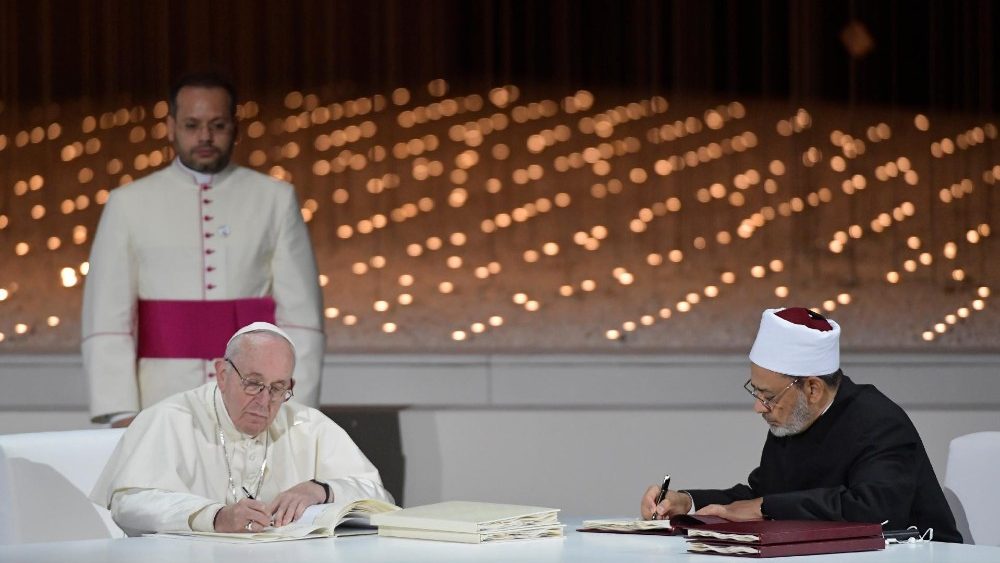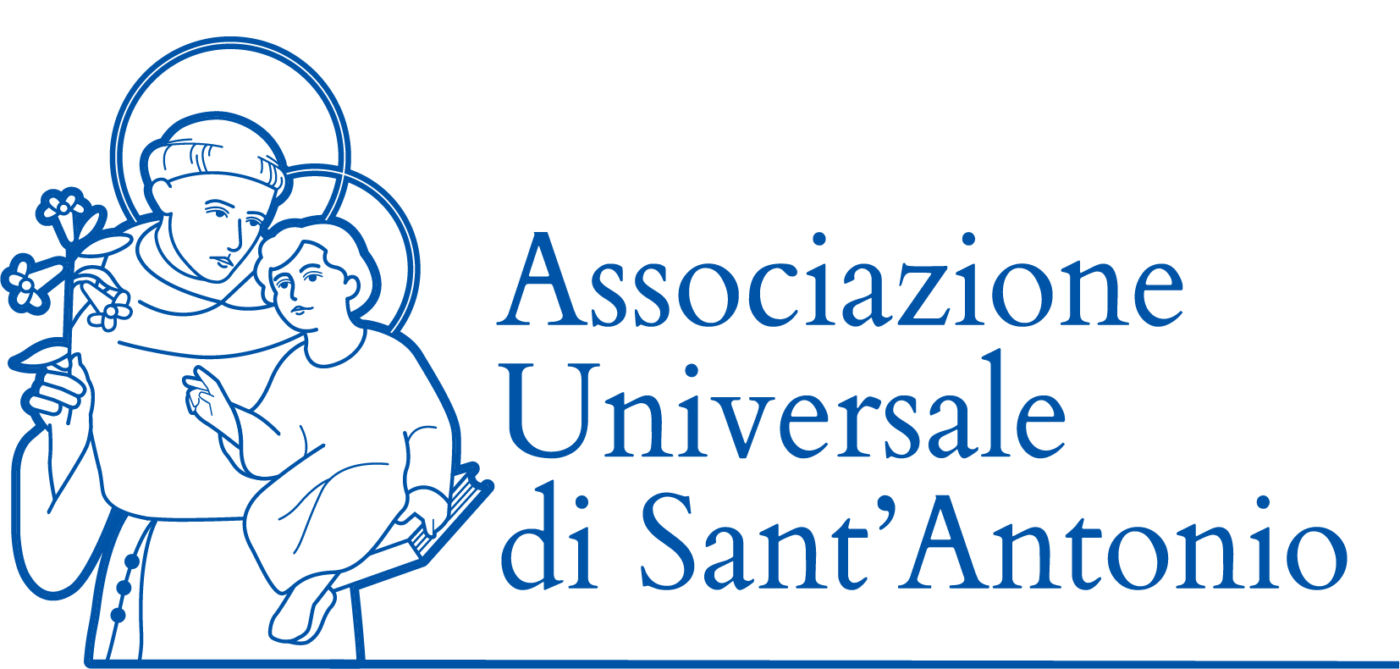During the press conference on the return flight from the United Arab Emirates, Pope Francis says the historic Document on Human Fraternity was born of “was made in the spirit of Vatican II”.
By Christopher Wells
On the flight back from the United Arab Emirates, Pope Francis said that the Document on Human Fraternity is a step forward — a step that, for Catholics, is rooted in the Second Vatican Council.
A document born of faith in God
The document, signed by Pope Francis and the Grand Imam of al-Azhar, Ahmed el-Tayeb, was prepared “with much reflection and prayer”, the Pope said. The one great danger at this moment, he continued, is “destruction, war, hatred between us.” “If we believers are not able to shake hands, embrace one another, kiss one another, and even pray, our faith will be defeated”, he said. The Pope explained that the document “is born of faith in God who is the Father of all and the Father of peace; it condemns all destruction, all terrorism, from the first terrorism in history, that of Cain.”
The Holy Father said that from the Catholic point of view, the Document on Human Fraternity “does not go one millimetre beyond the Second Vatican Council… the document was made in the spirit of Vatican II.” Among Muslims, he said, there are various opinions, but them, too, it is a process.
Wisdom and Fidelity
Speaking of his meeting with Muslim leaders, Pope Francis said the key words he took away from the encounter were “wisdom” and “fidelity”. “The path of wisdom and fidelity leads you to build peace”, he said. He said of the meeting that he was left with “the impression of being in the midst of true sages. I was very satisfied.”
Venezuela
Pope Francis also answered a question about a letter sent by Nicolás Maduro, the president of Venezuela, seeking to restart a dialogue with opposing factions in his country. “I haven’t read [the letter] yet”, he said, but added, “we’ll see what can be done.” The Pope noted that he was “always willing” to help dialogue, but that both parties must request it.
Church must do more to end abuse
Finally, Pope Francis was asked about the abuse of women religious — an issue that has garnered more attention as the overall crisis of abuse in the Church has been brought to light. He acknowledged that priests, and even Bishops, have sometimes been guilty of abuse in the past; and he said, “I believe it’s still happening: It doesn’t end just because it is recognised.” He noted that the Church has made progress in addressing some cases, but acknowledged that more must be done.
In his answer, Pope Francis praised Benedict XVI for his efforts to confront the crisis. “I would like to stress that Benedict XVI had the courage to do many things on this subject.” It is a myth that Benedict was weak, Pope Francis affirmed: “He wasn’t weak at all! He is a good man – a piece of bread is worse than he is, he is a strong man.”
The Holy Father said that with prayer, the Church can move forward in its response to abuse. “I want to go forward”, he said, emphasising that there are ongoing cases that are being addressed.
(Vatican News)


 Italiano
Italiano Français
Français
